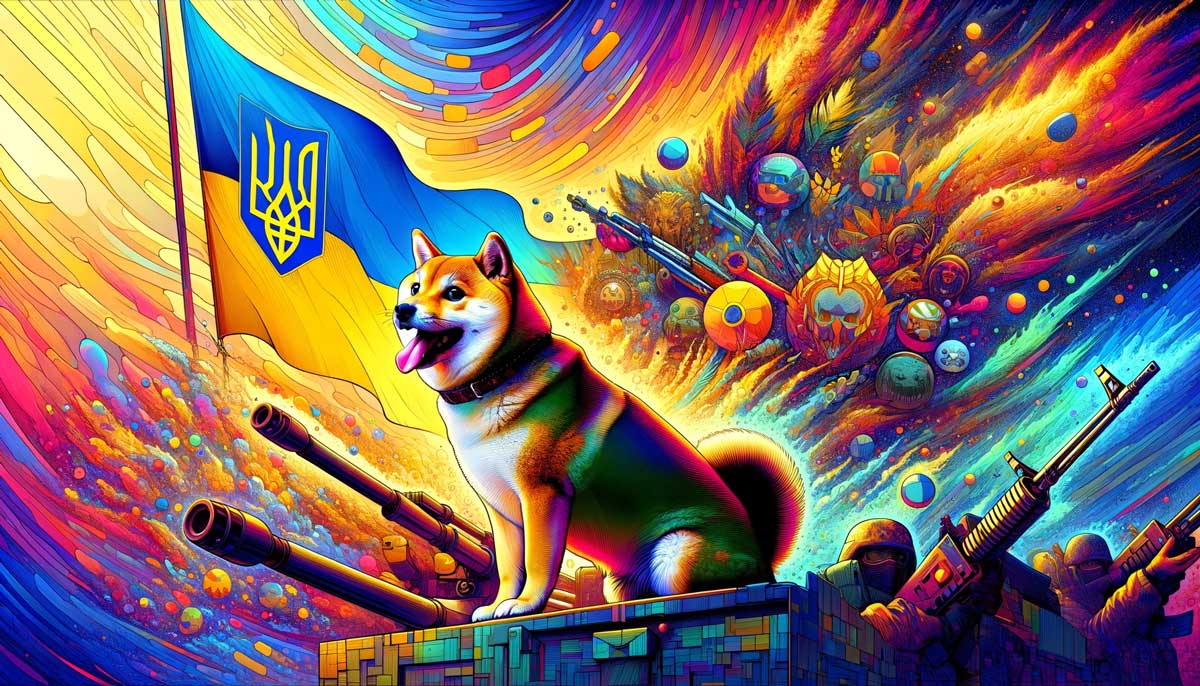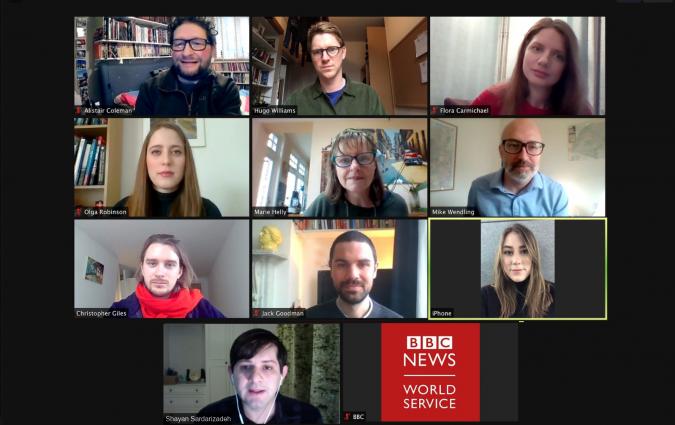In this piece
From memes to morale: Decoding Ukraine's comedy arsenal against disinformation

Illustration shows a bombardment of jokes and memes deployed to counter Russian disinformation. Image generated by DALL-E
Humour, often overlooked as a strategic communication tool, has played a pivotal role in Ukraine's response to Russia’s war and disinformation.
During my fellowship at the Reuters Institute, I explored the multifaceted ways in which humour operates, drawing lessons from Ukraine's experiences. Here, we delve into the six ways humour proves effective – as well as six potential pitfalls, with select quotes from key experts. The full paper is available in PDF form below.
Humour’s strategic power
1. Internal unity and coping mechanism. In the midst of conflict, Ukrainians discovered the profound impact of humour on mental health. Maksym Kyiak from Foreign Policy Council (FPC) ‘Ukrainian Prism’, noted that "jokes and memes help foster a sense of unity and belonging" among the population. Humour becomes a coping strategy, a lifeline that helps individuals navigate the harsh reality of war.
2. Attracting wider audiences and raising awareness. Comedy becomes a disarming medium to discuss sensitive issues, reaching audiences that may not typically engage in international affairs or politics. Priyank Mathur, former scriptwriter for The Onion, highlighted the viral nature of humorous content, stating that "It’s fun, it’s a way of bringing new audiences into the discussion that wouldn’t normally talk about these things."
3. Soft power and winning hearts. Ukraine's use of humour as a soft power tool has been a masterstroke. Corneliu Bjola, Associate Professor of Diplomatic Studies at the University of Oxford, emphasises how humour showcased Ukrainians’ bravery, making a connection with global audiences. The message, he said, was: "when you support us, you are supporting yourselves."
4. Ridiculing the enemy to boost morale. In times of war, humour becomes a powerful weapon to overcome fear. It not only highlights the failures of the opposing forces but also serves to boost morale. Ukrainians found solace in laughter, turning the once formidable Russian army into subjects of ridicule.
5. Exposing the absurdity of disinformation. Humour emerges as a formidable countermeasure against disinformation. Memes and satire are used to ridicule and expose the absurdity of Russian propaganda. This not only raises awareness but also enhances the audience's resilience to disinformation.
6. Gateway to a bigger story and combatting fatigue. Every joke conceals a story, and humour becomes a gateway to a deeper understanding of Ukraine's history and culture. It sparks interest, prompting audiences to explore beyond the laughter and engage with the broader context.
The perils of humour
1. Failure to grasp local context. Despite its effectiveness, humour can backfire if the local context is not thoroughly understood. An example involving the use of Hindu goddess Kali in a meme by Ukraine’s Ministry of Defence led to backlash, emphasising the need for cultural sensitivity.
2. Inappropriate source of jokes. The choice of content matters. Videos of soldiers dancing on the frontline, intended as morale-boosting content, faced criticism for potentially downplaying the severity of the situation.
3. Gallows humour and offensiveness. While gallows humour resonates with some, it can be incomprehensible or offensive to others. Instances of shark memes following a tragic event revealed the delicate balance needed when addressing sensitive topics.
4. Oversimplification and false impressions. Memes, despite their effectiveness, run the risk of oversimplifying complex geopolitical situations. They may inadvertently create false expectations and impressions about the severity of the conflict.
5. Creating false expectations. The overeliance on humour may create expectations that Ukrainians are not suffering as much, potentially discouraging support. It's a delicate balance between showcasing confidence and avoiding misinterpretation.
6. Short-lived emotional impact. Positive emotions induced by humour might not translate into long-lasting changes in views and behaviour. Humour needs to be a gateway, prompting deeper engagement and sustained interest.
In conclusion, Ukraine's use of humour offers valuable lessons for strategic communication. While humour is a potent force for unity, awareness, and resilience, its potential pitfalls highlight the importance of cultural sensitivity and strategic calibration.
As Ukraine continues to navigate the complexities of war, the role of humour in shaping global perspectives remains both dynamic and challenging.
This project and fellowship have been made possible by the support of the Thomson Reuters Foundation.


